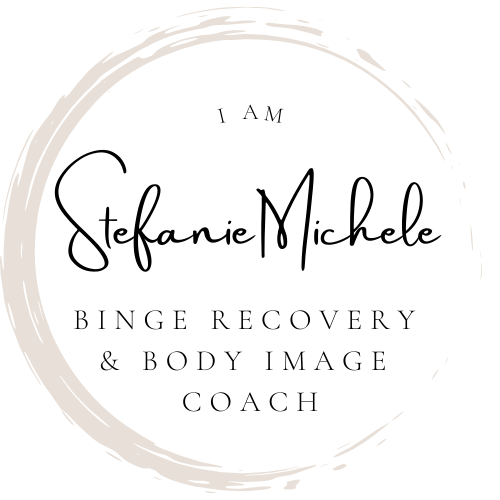Why You Want To Diet
There is so much information about dieting, and about how to stop dieting — but why do we diet in the first place? Why is it such a compelling topic?
On the surface, we pursue dieting because we want to lose weight. We live in a culture that explicitly values thinner bodies, so this is certainly a valid part of our motivation for wanting to control the size and shape of our bodies.
But weight loss alone is not the whole story.
There are deeper reasons for why we feel SO compelled to lose weight, and they don’t have much to do with weight at all. Because weight is socially sanctioned as meaningful, anything we project onto our weight is like saying “hey, this means something to me!” Healing your relationship to food and body size involves figuring out what your core issues are (we’ll get to examples of those later), and addressing them more directly.
Even after doing that work, you may experience times when dieting still feels like the answer. This is not a sign that dieting is the answer, but that another core issue has come up and may require more investigation.
Take my client Nicole, for example.
Nicole came to me in the beginning of 2020 looking to heal her relationship with food after decades of dieting. After nine months of working together, Nicole was binge-free and had mental space to focus on her actual life goals, which included starting her own branding business, enjoying time with her husband, and being an aunt to her new niece and nephew. By the end of our sessions, she reported feeling more at peace with herself than she had felt in her entire life.
Nicole and I kept in touch after that, but almost a year after our program officially ended, she reached out to say that she thought she might need another round of coaching. While she was still binge-free and feeling miles away from where she had been just two short years ago, she said she was grappling with self-doubt and thoughts of returning to dieting.
“I’ll never go back,” she said, “but I keep thinking about doing another round of Whole30. I know how that will end, so why is this happening? I was doing so well.”
I reminded Nicole that she was still doing well — despite feeling the seduction of diet culture’s promises, she wasn’t obsessing about food around the clock or falling into patterns of restriction and bingeing that controlled her life. (Sometimes we forget how difficult life really was inside of that cycle!)
I offered Nicole a few clarity sessions to see if moving ahead with another coaching package was warranted, but within a few weeks it was clear that Nicole wasn’t experiencing a shift in her value system like she had feared. Instead, Nicole was dealing with family boundary issues that had been dormant during our work together during the pandemic. Now that her family was physically more present in her life, the old issues were creeping back in. As a response to feeling a lack of boundaries, her mind went straight back to dieting, which historically gave her a feeling of control and insulated her against her mother’s comments about her body.
Nicole didn’t need an intuitive eating overhaul — she just needed a recalibration.
This article originally appeared in a guest post blog for Jessi Kneeland, Body Image Coach. To read the article in full, please visit the original guest post here.

